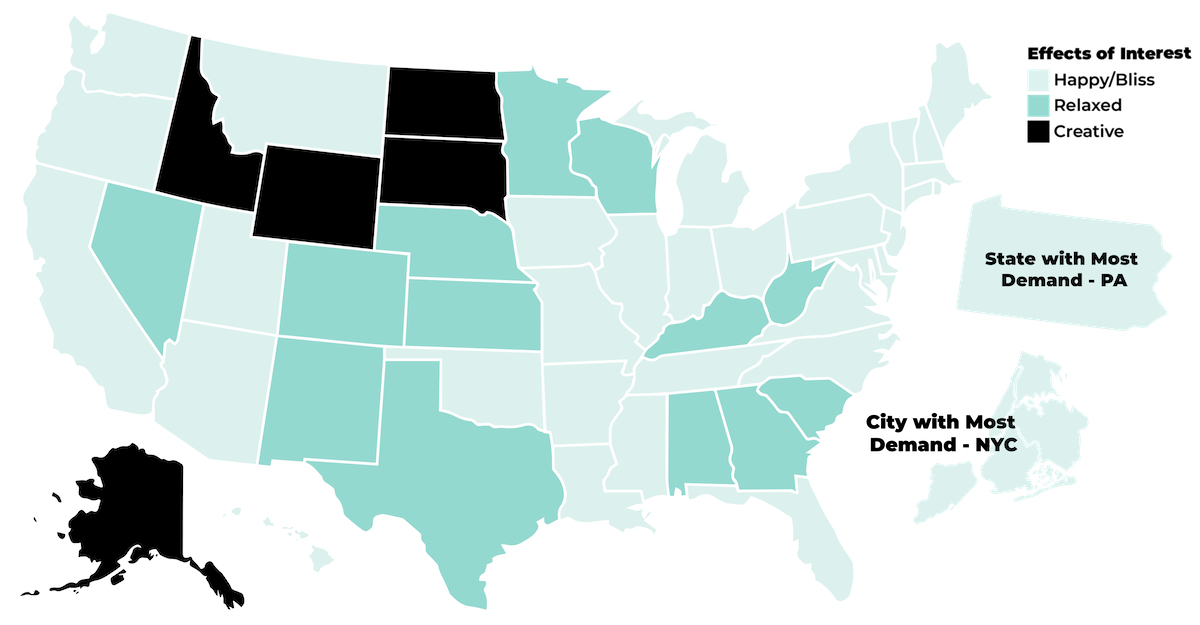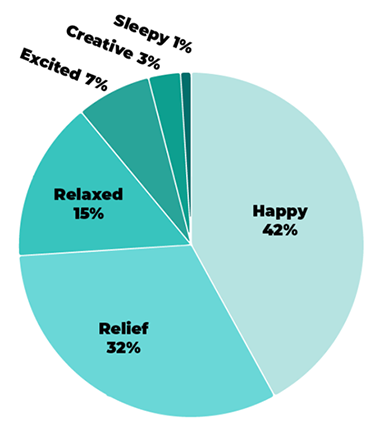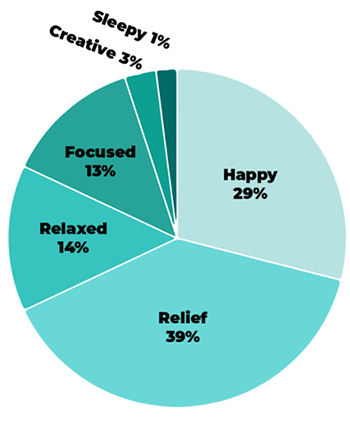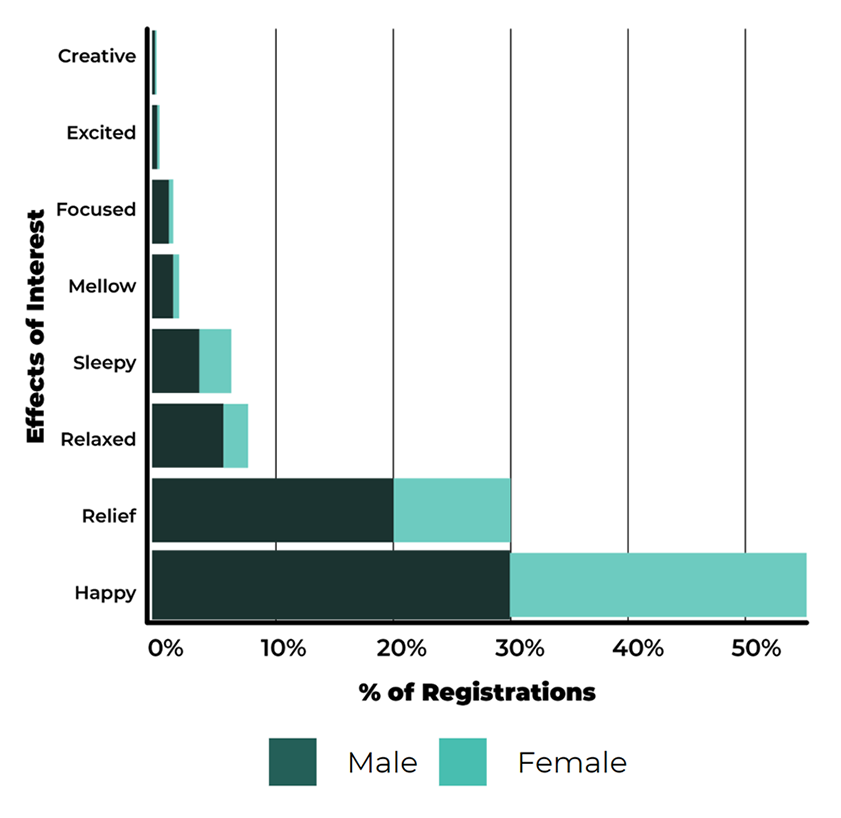How has COVID-19 Impacted
the Demand for Medical Cannabis?

During the COVID-19 pandemic, the call for telemedicine drastically increased, giving Veriheal an opportunity to learn more about medical marijuana patients. The results of this data report reveal the NEW reason patients desire medical marijuana has shifted during this time of global stress.
This report offers room for exploration into what cannabis has represented during COVID and understanding its place in a post-COVID world. It is also important to note the distinction between recreational and medical cannabis to make it apparent that this analysis is medical-focused and not to equate to the recreational market.
Our investigation into the interests and adoption of medical cannabis by patients during the COVID-19 pandemic was assessed in collaboration with graduate students from The University of Maryland School of Pharmacy, The London School of Economics and Political Science, USC Marshall School of Business, CREA, and Cannaclub using data provided by Veriheal.
In collaboration with:





The Hypothesis
Medical cannabis has traditionally been recommended as an alternative medical treatment in relieving physical pain and chronic conditions. The original hypothesis was constructed with this assumption in mind; we believed that the effect of interest would be “Relief/Pain-Free.”
Interest and demand for medical cannabis indeed increased during the 2020 year — we know this is due to the pandemic and other major/shocking events that took place during the year. Contrary to our initial belief/hypothesis, it can be inferred that patients were looking to cannabis for alleviation of mental stresses of said events. “Happy/Bliss” was found to be the most desired effect while “Relief/Pain-Free” was the second by a much lesser degree.
How We Analyzed the Data
Preliminary data was assessed utilizing patient information provided by Veriheal, which houses a database containing survey assessments of ≥ 125,000 patients. To learn more about the public’s use of marijuana during the COVID-19 pandemic, Veriheal’s sign-up and appointment numbers have been compared to the CDC COVID-19 tracker numbers.
Following this, comparisons were drawn between the amount of cannabis interest (sign-ups) and adoption (appointments) by virtue of Veriheal’s data in 2020 alongside with key spikes in COVID-19 cases provided by the CDC’s data tracker. The data was analyzed based on state, city, age group, sex, and condition/reason for cannabis use.

In 2020 the data showed:
The main reason customers were interested in using medical marijuana was actually due to mental stress.
Contrary to our initial hypothesis, it can be inferred that patients were looking to cannabis for alleviation of mental stresses of said events. “Happy/Bliss” was found to be the most desired effect while “Relief/Pain-Free” was the second by a much lesser degree.
Covid-19 Impacted Insights
Analysis suggests interest in cannabis drastically increased throughout the months with heavy societal shock. For example, during the protests, pandemic spikes, and pre-election.
In 2020, patients picked “Happy/Bliss” 46% of the time when asked the reason for their desired effect when using medical cannabis.
The data suggests during the pandemic people suffered from at least one depressive episode or had anxiety.
Millennials were the most likely to get their medical marijuana card in 2020 followed by Generations X and Z.
thousand
records analyzed
percent
seeking happiness
Proportion of Effects Desired

It can be assumed from Veriheal’s dataset that a large number of people suffered from a depressive episode or had anxiety during the pandemic. We can further extrapolate that America went through times of unrest beyond the pandemic, which influenced the number of sign-ups and appointments through Veriheal.
The pandemic, protests, riots, and elections caused major worries and uncertainty for the nation; therefore, medical cannabis is being sought out as a tool for mental health and a means to achieve happiness.
Predominant Effects Desired by State

When breaking down our nation state-by-state, the effect most desired at the state level is still happiness, with a few wanting to feel relaxed or creative.
PA is the state with the highest demand for medical cannabis, which could be due to it being a medical-only state.
New York City is the most populous; therefore, they have the most demand as a city. And the city was also subjected to the highest amount of COVID cases at one point.
Confirmed Appointments
Compared by Sex
Male:
Reason for Using Cannabis

Female:
Reason for Using Cannabis


Our sex breakdown shows that the majority of males are seeking happiness through cannabis as well, followed by relief. Males were also most likely to attend their appointment upon sign-up, and therefore, act upon their interest and adopt medical cannabis consecutively.
However, with females, the top reason is relief, which can be related and linked to women’s and reproductive health like menstrual cramps and menopausal pains.
What This Insight Tells Us
During major public times of fear and stress, new medical marijuana patients are seeking comfort for their mental health. The conversation people are having about cannabis is moving away from physical explanations and towards a feeling or mood-based concept. This could potentially reshape the entire cannabis industry as more brands, doctors, and therapists pivot towards emotional healing with medical cannabis.

Credits:
1. Maha Haq, MS in Pharmacology, University of Maryland School of Pharmacy, and CEO of CREA
2. Amanda Joseph, MS in Economic Sociology at The London School of Economics and Political Science
3. Carolina Souza, MS in Finance at USC Marshall, School of Business










